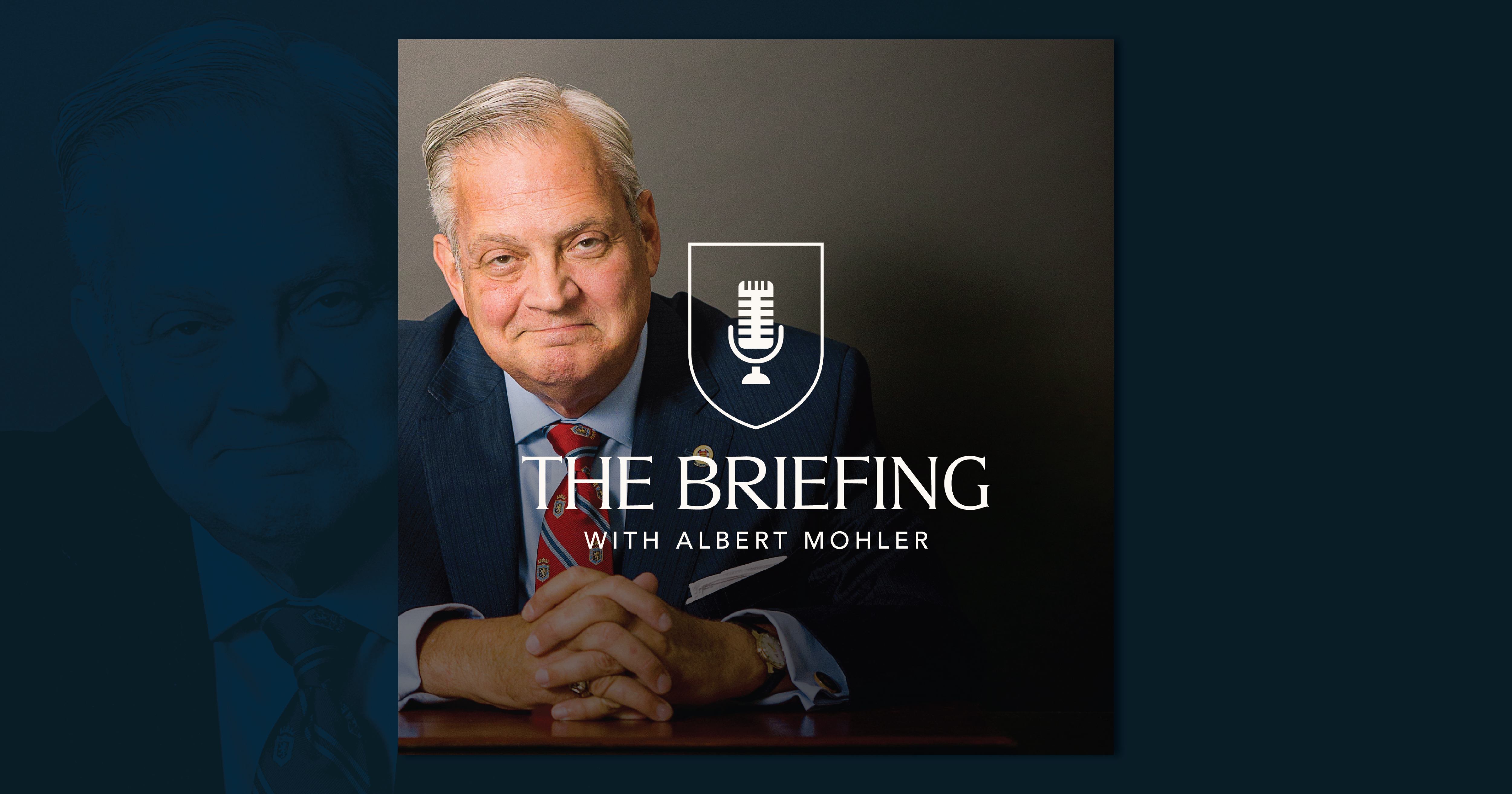
We’re going to consider a couple of hotspots in the world today in order to look at big worldview significance behind the headlines, because when we’re talking about, say, the Russian invasion of Ukraine in recent events or when we’re talking about the United Nations and China and human rights, there are some really huge issues at stake. And right now, we are at a crucial moment in both of these stories. Let’s go first to international disorder and where better to start than at a bridge that links Crimea with Russia or used to. The Kerch Bridge as it is known, suffered a strike that took place in a big explosion on Saturday. And according to video evidence, one span was largely destroyed or at least a very large gap has fallen into the water.
And furthermore, the explosion seemed to ignite fuel that was on a train nearby the blast, and that led to damage to a rail bridge. It’s unclear exactly how extensive the damage is, but no doubt it is big enough to be a huge embarrassment to the regime of Russian President Vladimir Putin. And in order to understand why this bridge has such military, economic and political significance, just understand that this bridge did not exist until Vladimir Putin in 2016 simply seized the Crimean Peninsula from Ukraine and declaring it a part of mother Russia decided symbolically, politically, and economically to score big points by building this bridge that span some 12 miles of the straight between the Crimean Peninsula and mother Russia. And then dedicating the bridge himself, he himself driving the vehicle that celebrated the opening of the bridge.
And thus, this was not merely an attack upon the bridge as an instrument of military and strategic significance nor, this was a political and a moral act intended to and quite successfully humiliating the Russian president. Now, there’s just so much to be reminded. I fear for one thing, we’re reminded of the fact that war is never simply about military and weapons and shooting and bomb blast. It is also about morale, it is also about scoring moral points. And one of the most interesting developments in recent months is that Russia has lost so many of the points on both morale and morality. Morale has fallen so low in Russia that the big news stories are about Russian men of military age trying to flee the country. Some of them reported just over the weekend, daring to try to cross in a small craft across the bearing straits into Alaska. There’s irony there, some of you will figure that out. How many times must Russia have regretted selling the entire territory of Alaska to the United States?
A team of reporters for the New York Times, Michael Schwirtz and Andrew E. Kramer reported the story this way. “A fireball consumed two sections of the only bridge linking the occupied Crimean Peninsula to Russia on Saturday, disrupting the most important supply line for Russian troops fighting in southern Ukraine and dealing an embarrassing blow to the Kremlin, which is facing continued losses on the battlefield and mounting criticism at home.” Now, the issue of morale is one that we don’t often consider according to what a biblical worldview would help us to understand. When you are talking about morale, you’re talking about attitude. You’re talking about the moral content of a people or an individual in maintaining tenacity, say in the face of adversity in a fight. You can talk about the morale of a Boy scout troop. You can talk about the morale of a congregation, the morale of a family, or even of an individual.
But generally, it’s most important to think of morale as a social phenomenon, not so much an individual but a group. And when you’re talking about a military force, morale is one of the most powerful weapons, and a loss of morale is one of the most strategic vulnerabilities. To put the matter differently, high morale often leads to high effectiveness, low morale often leads to great vulnerability. One of the very interesting things you see in the Old Testament, for example in the Book of Joshua, is the fact that Israel is actually encouraged, indeed commanded to operate out of high morale. And you see different speeches, different words, different exertions and encouragements given by Joshua and the other military commanders to the fighting forces of the children of Israel. In order that they would triumph not only by the power of God demonstrated in victory over their enemies, but the victory of the morale, the courage that was put in the hearts of God’s people.
And similarly, you see the very same thing and some of the military metaphors employed in the New Testament by the Apostle Paul. When the Apostle Paul used these military metaphors for Christians, for the Christian Church, he was not merely pointing to something that given the Roman army, those who heard his preaching or read his letters would understand. He went to the military metaphors precisely because they underline moral, order, obedience, command, and they make very clear the reality that the Christian and the Christian Church are actually called to a spiritual warfare and that warfare is going to be fought on moral and moral terms. Most famously, we think of the words of Jesus and John 16, when speaking to the disciples, Jesus said, “In the world you will have tribulation, but be a good cheer. I have overcome the world.” One of the most interesting responses coming from Russia in the aftermath of the blast on the bridge was the claim that it wasn’t so damaging after all.
It’s also interesting to note that the video evidence came from security and traffic monitoring cameras that had followed the story until the massive blast. And that massive blast in video form has been seen by millions of people and it’s being watched over and over again. Now, that builds morale on the part of Ukrainian forces. It drains morale when it comes to the Russian forces. Now, the Russian forces struck back in the last two days and news reports indicate that Russian forces have launched attacks on several key Ukrainian sites and cities, most of them by either missile or rocket attacks. And this includes an attack on a city as far from the battle zone as Lviv. But nonetheless, the attempt is to try to rob the Ukrainian people and Ukrainian armed forces of morale.
And in the battle for morale, here’s a very interesting thing for us to watch. Vladimir Putin, clearly expected to build political capital and to gain political morale in Russia by launching this invasion, especially with his vision of an expansive mother Russia. But the table’s been turned and actually the Russian invasion of Ukraine ended up building morale in Ukraine rather than in Russia. That’s one of the perplexities by the way of the military situation. Sometimes indeed, very often you have unintended consequences. It also points out that if you are going to launch a military operation in order to build morale, you better have troops with high morale and those troops had better win quickly, decisively, lastingly, that’s what Vladimir Putin and his Russian forces have not been able to deliver. And the world is watching, and by the way, Russians are watching. Speaking of morale, by the way, one of the things to watch is when you have a political leader actually doing something or trying to look like he’s doing something.
A report that came from the Associated Press in the aftermath of the attack on the bridge included this information. Putin, that means Russian president “Vladimir Putin, signed a decree late Saturday tightening security for the bridge and for energy infrastructure between Crimea and Russia and put Russia’s Federal Security Service, the FSB in charge of the effort.” That is politically trying to look like you’re doing something when you actually didn’t do anything at all. Tightening security after such a devastating attack is sort of like closing the door After the dog’s already out. Then we are told that he put the security, therefore the bridge linking Crimea and Russia, that he put it in the hands of Russia’s Federal Security Service is known as the FSB. It was formerly known as the KGB. But here’s the bottom line. If they’re actually so good, they’re supposed to be one of the world’s leading spy agencies, then the big story is not what they did, but what they failed to do.
KGB, FSB, guess what? Your bridge just got blown up. Let me make one other statement in transition to the next story, and that is this. The link between morale and morality is more clear than most people might think. And I think this is an actual reflection of what it means to be made in God’s image, to be made moral creatures with a conscience. And it simply comes down to this, in human experience and in human history, it is far easier to build lasting morale when you’re on the right side in terms of the moral equation. When you are on the wrong side of morality, and when you frankly know yourself and others know you are on the wrong side of the moral question, building morale turns out to be a very difficult prospect. And for that, by the way, we should be thankful.







